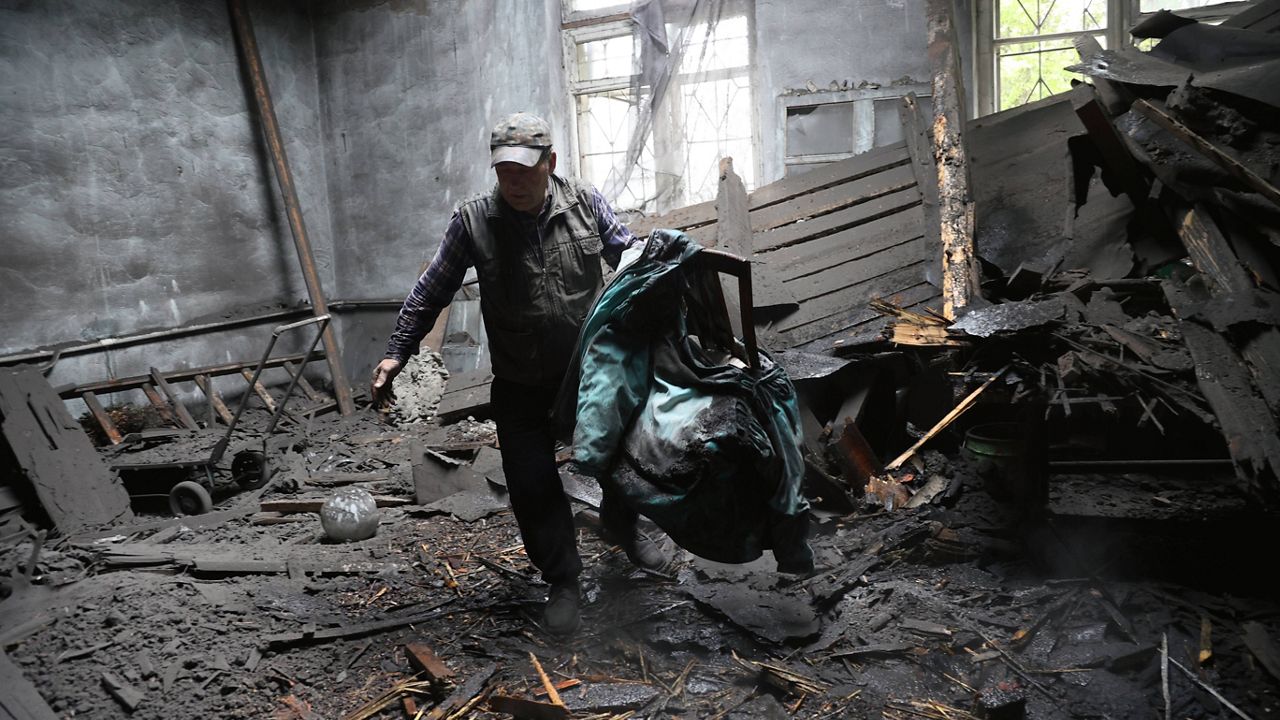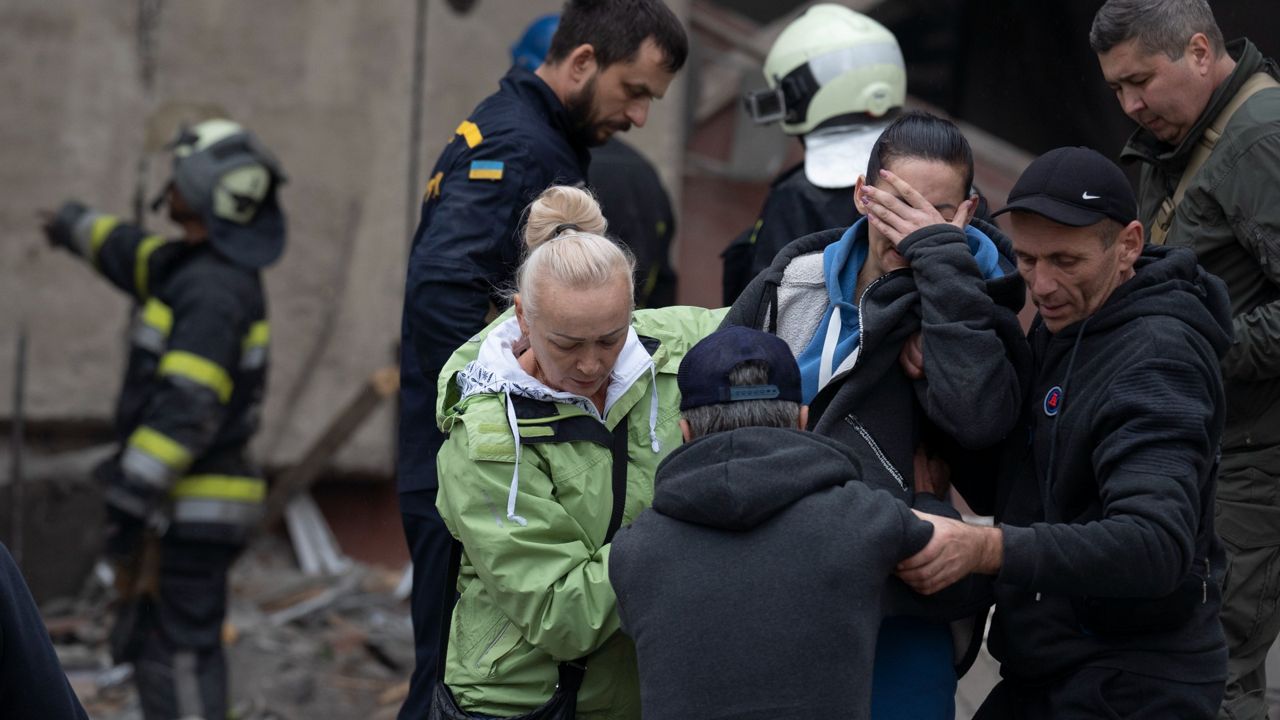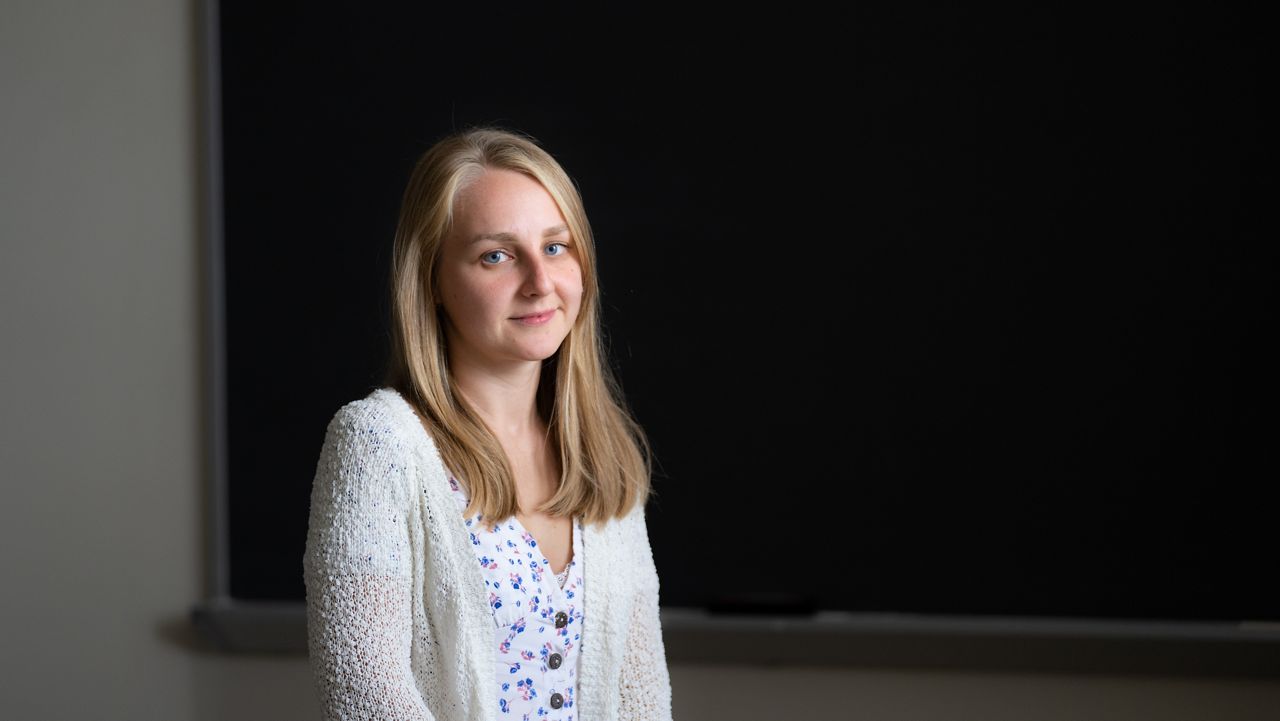This is the second of a two-part series on Oksana Katsanivska and her family, who fled Ukraine shortly after the war with Russia began and are now living in Oshkosh. While appreciative of the support from the community, they are determined to return to their homeland one day. Read part 1 here.
Editor’s note: Some readers might find the details in this story extremely graphic and disturbing.
OSHKOSH, Wis.— Oksana Katsanivska and her family were spending their first Saturday in a new city in a new country. And at exactly 12 p.m., she knew they made the right decision to leave Ukraine.
“He heard the tornado siren,” she said of her 3-year-old son.
To him, it was no different from the air raid sirens he had heard so often in Ukraine that left them scrambling for cover. The war with Russia was 5,000 miles away, but it had followed them to the United States.
“He was like, ‘Mom, we need the basement. Where do we go?’” she said. “And I was like, ‘Son, no, it’s not that thing. It’s just … they’re checking. It’s OK, don’t worry.’
But he did.
“The first few times, first few Saturdays, I had to tell him, ‘OK, it’s almost 12 o’clock. So it’s gonna go on.’ And we’d been there (in Ukraine) for not that long. I cannot imagine what would happen if we had spent more time there.”
It was the reason she decided to leave.
“I don’t want them to be children of the war, and having that …,” she said, unable to finish the thought, speaking of her son and daughter. “And if they have a chance not to be ….”
****
She can never leave the war.
When Jordan Karsten, chair of the anthropology department at the University of Wisconsin-Oshkosh, helped Katsanivska and her family relocate to Oshkosh and get her a job teaching at the school, one class they assigned her was “Russo-Ukrainian Conflict.”
“I don’t want to be biased,” she said. “I’m trying to get to know all the information which is possible.”
But it’s a big ask.
“I listened to all those interviews of the captured soldiers, and sometimes our security service (Security Service of Ukraine) published this, records of phone calls from Russian soldiers to their wives and mothers back in Russia,” Katsanivska said. “And you hear those women, not even the soldiers, you hear those women saying that, ‘OK, you need to rape more Ukrainian women and you need to kill as many Ukrainian kids as you can. Because they will grow up and they will want to kill our kids.’"

“There were different ones. But those are the ones that just got stuck in my head, because I cannot imagine.”
There’s more, but you get the point. And, yes, at times it’s overwhelming. Yet she said she enjoys the discussion class, and the UWO students are receiving a distinct opportunity.
“I think we’re really lucky to have her here,” said Karsten. “And the students she has, I think they’re getting a really unique experience here at UWO because she’s here. I mean, it’s a good thing for the university community. There’s no doubt about it.”
****
Katsanivska said the lines were impossibly long. They were not residents trying to leave the country. They were Ukrainian men, signing up for military service.
“Ukraine has never been more nationalistic in terms of being proud of their nation,” she said.
When this conflict began, the belief was it would end quickly. Russia’s military might would overwhelm Ukraine.
But the war is heading into its eighth month.
“We are proud of our country,” she said, while also expressing gratitude to the U.S. and other countries who have given monetary and military support.
“And we are extremely proud of our troops, like extremely. They have never had this level of support in Ukraine, because we do realize that they are doing miracles. I mean, they’ve been fighting, not with bare hands, but with not that much weapons at the beginning. And they managed to do impossible.”
The same can be said for those Ukrainians not in battle.
In June, Ukrainian TV personality Serhiy Prytula put out a video asking Ukrainians to donate money so they could purchase three drones to give to the military.
“Ukrainians managed to raise money for four in three days,” said Katsanivska.
That was $20 million.

“And then the Turkish company who produces them was like, ‘Well, people, we are so amazed by what you have done and by you being united in this. We want to give them to you free of charge,’” she said. “So we got them free of charge.”
They used the money to buy the military a satellite instead.
“So they bought a satellite because the Ukrainian army did not have a satellite before,” she said. “We had to rely on the satellite photos from Americans and British. So they bought the satellite, like forever. They also bought access to the 23 other satellites in that constellation where we hold it, so we could have photos like nonstop. And that was just like, you know, this is amazing. It’s so cool. I mean, that is just crazy.”
If there is anything that could possibly make you feel good about war, this was it.
“I like to tell this because it shows nothing is impossible,” Katsanivska said. “If people start just working together and they have this one idea, they will accomplish whatever they want. I felt proud. I sent money to that fundraiser and then I thought, ‘Well, I bought a satellite.’ I’m proud of it. It makes you feel so good.”
****
Katsanivska looks at her son today and is thankful he has forgotten the sirens and what they once meant.
She also is thankful he remembers.
“My son, he keeps telling me he wants to go back home,” she said. “And it’s not like just, you know, six months have passed. If he had to forget, he would have done that already. He is not going to forget that. He wants to go home.”
He is not alone.
“I want to go back, like that’s my plan,” she said. “I do not consider moving here to be permanent. It’s my country. I don’t want to live anywhere else. I mean, it’s great here. I enjoy it, but I want to live in my country."
“I always come back home. I always do.”
Story idea? You can reach Mike Woods at 920-246-6321 or at: michael.t.woods1@charter.com



